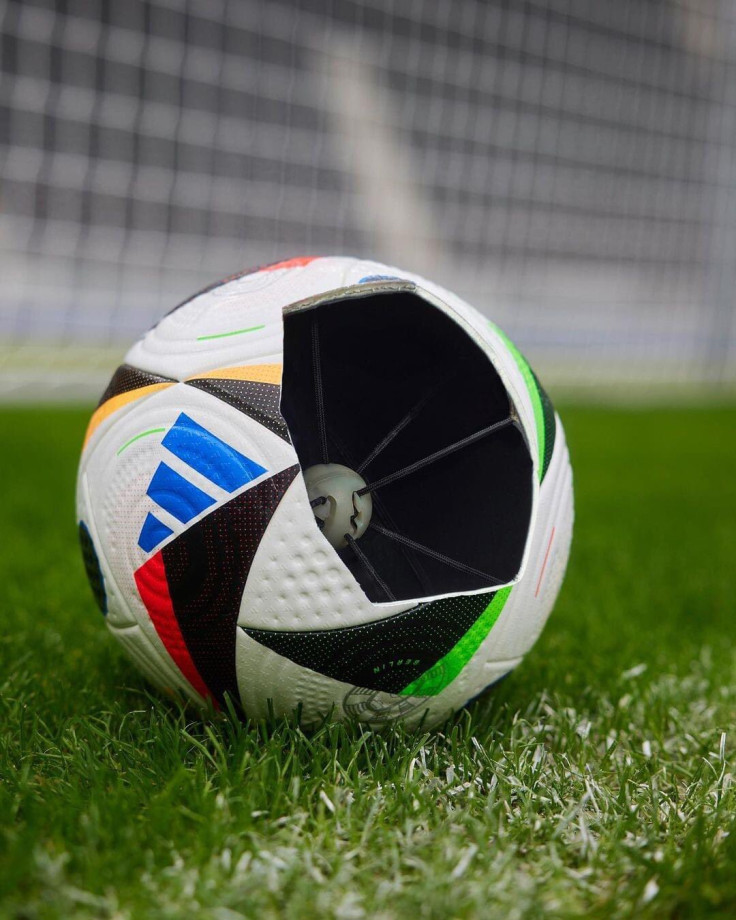
Artificial Intelligence (AI) is once more changing the way we do things, this time influencing one of the most popular sports in the world - soccer. In fact, for Euro 2024 in Germany, the sport boasts an impressive array of awe-inspiring technologies, from AI-powered limb tracking to a high-tech ball with an embedded chip.
These advancements are expected to empower referees with the tools to make the most accurate decisions ever seen in the tournament.
Delving deeper, let's explore these cutting-edge AI-powered technologies transforming Euro 2024.
Video assistant referee (VAR)
Euro 2024 embraces video assistant refereeing (VAR), a system that continues to spark debate despite a season of controversy in the Premier League.
VAR utilises off-field officials who analyse instant video replays from different angles. This in-depth analysis aims to provide the on-field referee with crucial insights they might have missed in the heat of the moment.
The VAR team advises the referee on critical decisions but faces criticism for disrupting the game flow and, ironically, for introducing potential human error through video review. Euro 2024 matches will be overseen by a VAR team stationed at the high-tech hub in Leipzig, according to a blog post on UEFA.com.
The VAR team is spearheaded by a Video Assistant Referee (VAR), the main decision-maker who communicates directly with the on-field referee. Additionally, two Assistant VARs (AVARs) focus on meticulously following the match action.
With a united focus, the VAR team scrutinises the match for clear errors in four critical areas, including goals, penalty area incidents, red cards, and cases of mistaken identity. Their vigilance ensures these "match-changing situations" are officiated correctly.
The VAR can recommend that the referee overturn or amend the original decision if it detects a clear error during one of these crucial moments. However, the final authority on the field rests with the referee.
Any VAR review updates will be displayed on the stadium's big screens for the audience to follow. Unlike last year's Women's World Cup, referees won't provide verbal explanations.
Hawk Eye
England fans still scarred by the ghost of Frank Lampard's disallowed goal in 2010 can breathe a sigh of relief – goal-line technology, also known as Hawk-Eye, is here to avoid such predicaments.
Hawk-Eye plays a crucial role in officiating by determining whether the entire ball has crossed the goal line or not. This technology proves invaluable for those close calls that plain human sight can't resolve.
All ten German stadiums adopt goal-line technology systems from the British Hawk-Eye Innovations or the German company Vieww. These systems take advantage of seven high-precision cameras positioned strategically above each goal. Overall, there are 14 cameras per stadium to pinpoint the ball's exact location.
When the Hawk-Eye or Vieww system detects the entire ball crossing the goal line, a silent and instantaneous electronic signal is transmitted to a specialised watch-like device worn by the referee. This discreet notification indicates a goal decision.
Semi-Automated Offside Technology
As part of a highly-efficient AI-powered system, semi-automated offside technology plays a key role in helping match officials make the right decisions quickly. It eliminates frustrating delays to gameplay.
This AI-powered technology tracks players' limbs to determine offside positions and automatically alerts the video assistant referee (VAR). Here's how it works.
All Euro 2024 stadiums are equipped with a network of ten cameras. These cameras meticulously capture data points on each player's body, tracking up to 29 locations 50 times per second. This data encompasses everything from the tips of their toes to the tops of their heads.
The AI system relies on the camera footage to meticulously pinpoint the exact moment a pass is made and determine the precise position of the attacking player relative to the defenders.
In a mere half-second, it determines if any offside body part exists. If an offside is detected, the system automatically alerts the VAR operator, who reviews the information, confirms its accuracy, and then relays the decision to the referee.
Connected Ball
A far cry from the humble beginnings of football in 19th century Britain, the Euro 2024 Adidas match ball, aptly named "Fussballliebe" (German for "love of football"), boasts a revolutionary chip nestled at its core. This innovative technology promises to deliver precise insights into the ball's movement.
Housed in the centre of the ball by an intricate network, the sensor transmits data to the video operation room at an astounding rate of 500 times per second. This enables the system to track the ball's location with unparalleled precision the moment it's struck.

The sensor draws its juices from a cleverly integrated rechargeable battery, charged by induction - the same technology that keeps your smartphone fueled wirelessly. This eliminates the need for cumbersome cables and ensures seamless operation.
That's not the only way technology is revolutionising soccer. The aiScout app, developed by a London-based tech firm, empowers aspiring footballers around the globe. Players can participate in virtual trials with professional clubs by uploading self-recorded footage of drills, bypassing geographical limitations and traditional scouting costs.
Democratising talent scouting with the aiScout app is just one example of technology revolutionising soccer. However, with increased reliance on AI, concerns arise about the future of referees and other human officials. Only time will tell if the beautiful game can retain its essence amidst these technological advancements.







